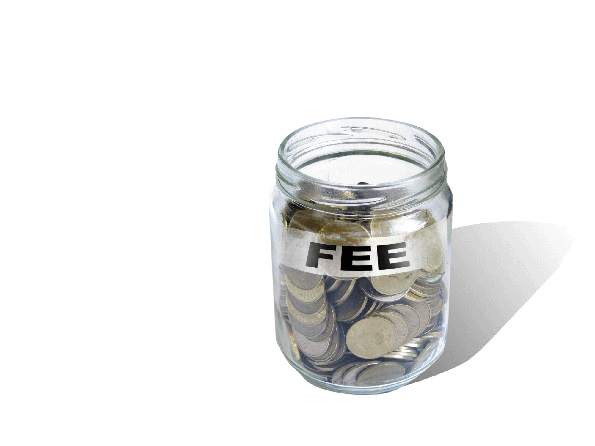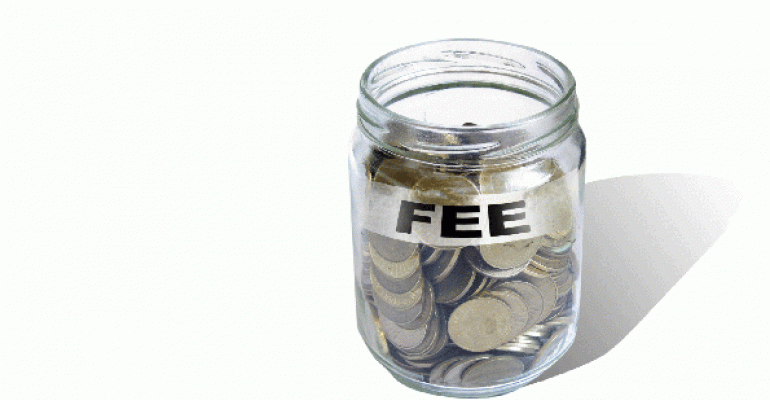 We’ve almost—almost—become accustomed to paying for things that used to be included in the airline ticket price: checking a bag at the airport, getting an aisle or window seat (or any seat with reasonable legroom), and even boarding early. (Here’s a great guide to airline fees, courtesy of Smarter Travel.) Then once you land, if you need to rent a car, you sigh and pay the taxes, airport surcharges, insurance, licensing fees, fees for electronic toll-collection devices and in-car GPSs, gas refill premiums, etc., etc. (and here’s a guide to avoiding some of these fees that might come in handy).
We’ve almost—almost—become accustomed to paying for things that used to be included in the airline ticket price: checking a bag at the airport, getting an aisle or window seat (or any seat with reasonable legroom), and even boarding early. (Here’s a great guide to airline fees, courtesy of Smarter Travel.) Then once you land, if you need to rent a car, you sigh and pay the taxes, airport surcharges, insurance, licensing fees, fees for electronic toll-collection devices and in-car GPSs, gas refill premiums, etc., etc. (and here’s a guide to avoiding some of these fees that might come in handy).
But hotels, especially our meetings' host hotels, must we really go there to ever increasing degrees? Obviously, the answer is “yes,” given that hotels are now expected to score $2.25 billion-with-a-b this year alone, according to a new trend analysis report from NYU School of Professional Studies professor Bjorn Hanson, PhD. While about half of this ancillary profit is due to the 3.5 percent rise in hotel occupancy the industry is currently enjoying, the professor at NYU’s Preston Robert Tisch Center for Hospitality, Tourism, and Sports Management says the rest comes mainly from a 6 percent leap in both the number of new fees being added, and a rise in price for those already in place. Oh goody.
Of course, fees are nothing new—they've been around since at least 1997, when some resorts glommed onto the joys of adding a resort fee on top of the room rate, but they are growing steadily year over year. (Aside: Boy have we written a lot about hotel fees! A quick search found articles from back in 2001, when $1 billion in fees seemed like a lot, to this list from four years ago of Hanson's list of most unscrupulous fees, to this Clause and Effect that suggests having "the hotel complete a 'Hotel Disclosure Checklist' at the time of contracting, requiring the hotel to disclose surcharges for local calls, long-distance calls, Internet access, newspaper delivery, and other services associated with guest rooms.")
So what fees do you have to look to exclude in your contracts? In addition to the usual in-room Internet daily fees most of the better conference hotels seem to like to charge, look for early departure, minibar restocking (or even just picking up a can of soda and putting it down again, in some cases, or a fee to stash your own can in the minibar fridge), business-center access, delivery surcharges on room service, in-room safes, checking luggage post-checkout, shipments to the hotel, printing boarding passes…and I’m sure the hotel industry can be just as inventive as the airlines in thinking up what to charge a new fee for in the future. Given the drought in California, I'm surprised there aren't already extra water fees (or maybe there are and I just haven't heard about them yet?). And our old friend the energy surcharge is always lurking, just waiting for a chance to jump back onto the master bill.
This Louis C.K. SNL skit from 2012 may be funny, but it also may be a glimpse into the future…
In the meantime, here's some timeless advice from industry attorney John Foster, Esq. Negotiate out as many add-on fees as you can think of, then further protect yourself by adding a clause that goes along the lines of:
Miscellaneous Charges/Authorized Signatures:
1. No additional charges not specified in this contract, or any addendum, will be incurred by XYZ Group for work performed or for services or items provided by HOTEL unless HOTEL has first obtained prior written permission from an authorized representative of XYZ Group to have the work completed or the service or item provided.
2. Neither XYZ Group nor attendees will be responsible for additional surcharges, gratuities, or service fees not included in this contract without XYZ Group's or an attendee's written consent, respectively.
This clause also protects planners from unexpected charges that can occur when someone without authority orders something from the hotel, such as an extra projector or plate of hors d'oeuvres. With this clause in your contract, “a hotel is obligated to take requests for items only from someone representing the meeting sponsor who has the authority to make those decisions,” Foster says. “If the hotel takes orders from a person who is not authorized by the meeting sponsor to place such orders, then the hotel does so at its own risk.” Just be sure to designate one or more persons in the contract as being authorized to provide consent so the hotel will know to whom it should listen and respond.
How do you protect your group from ancillary fees and surcharges? Please leave a comment below or e-mail me with your advice.






